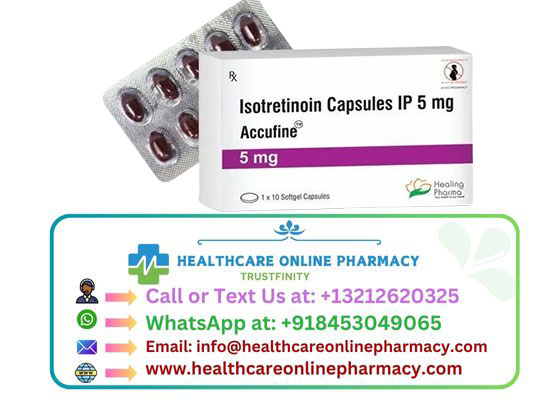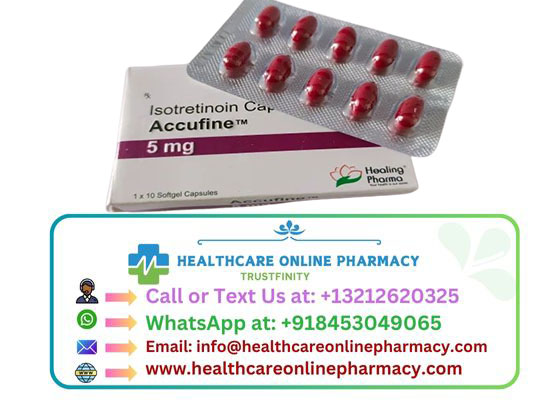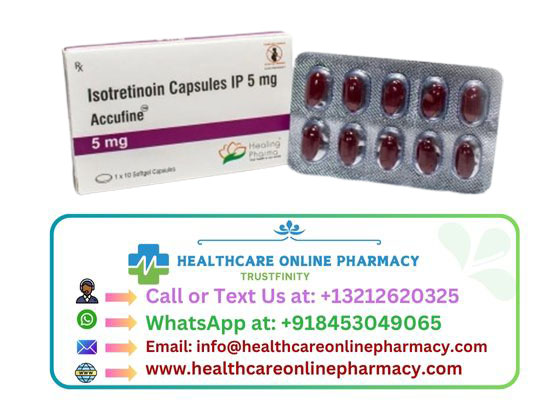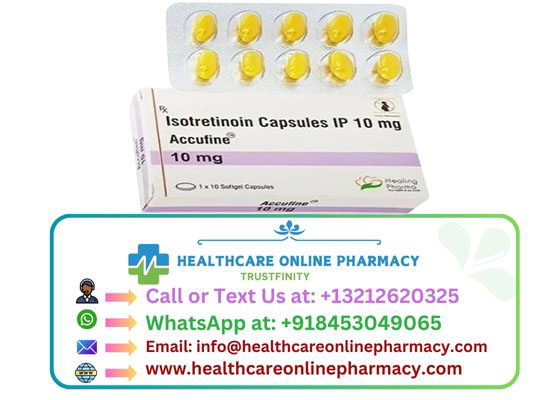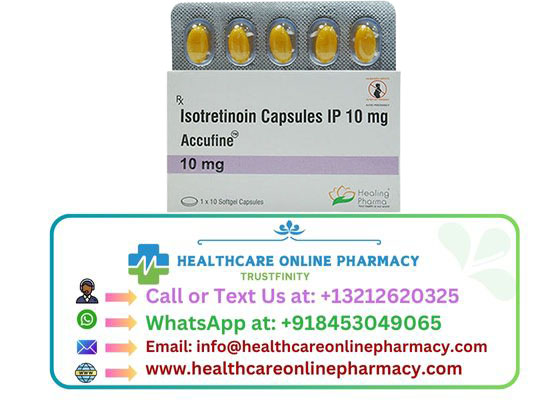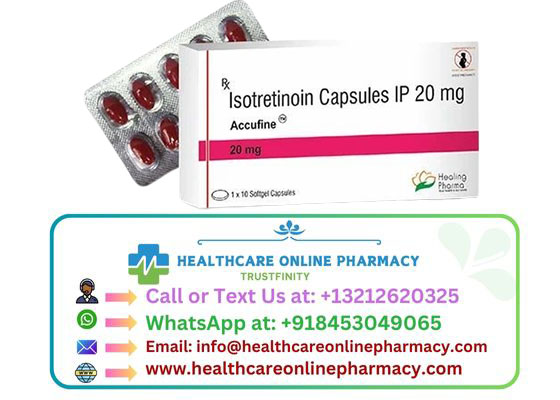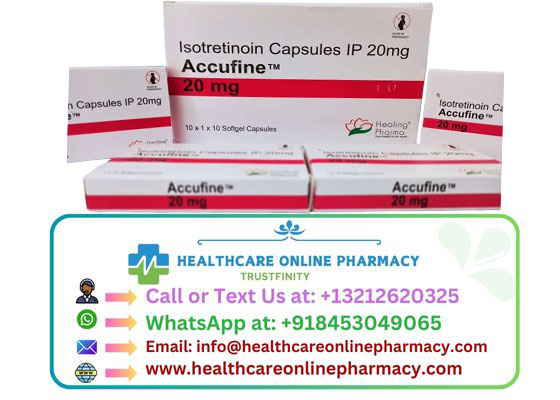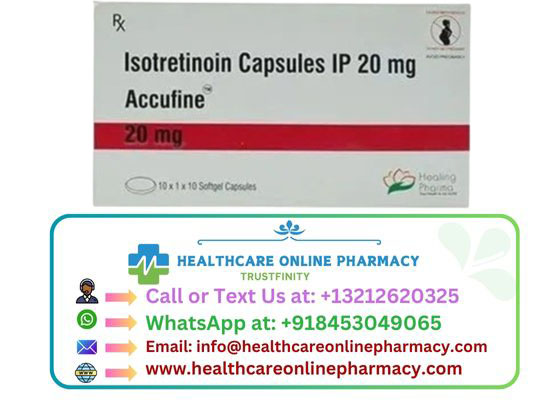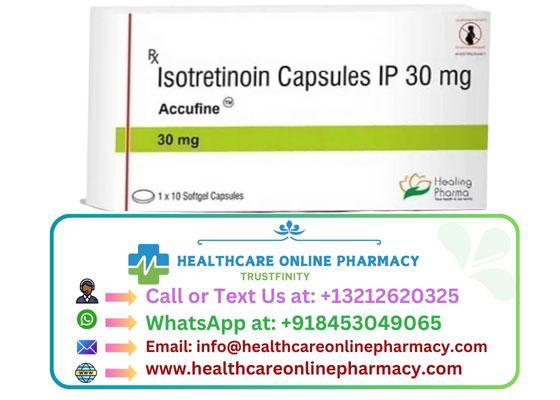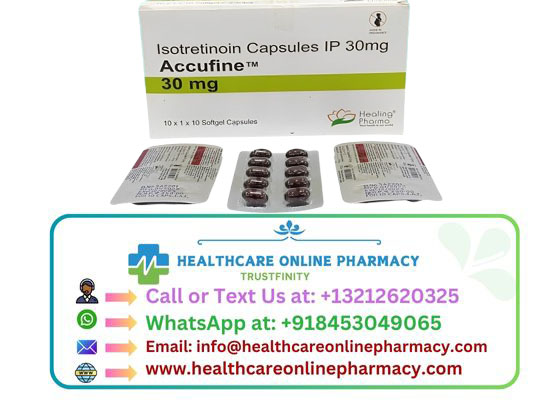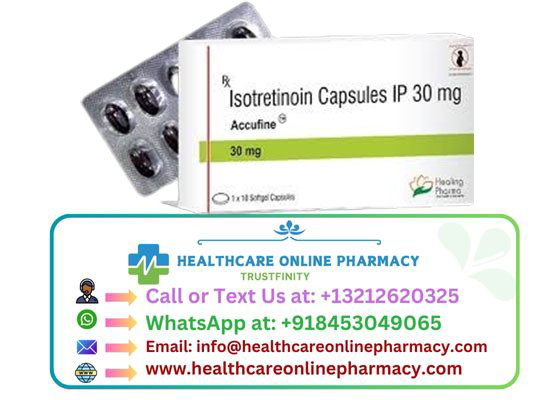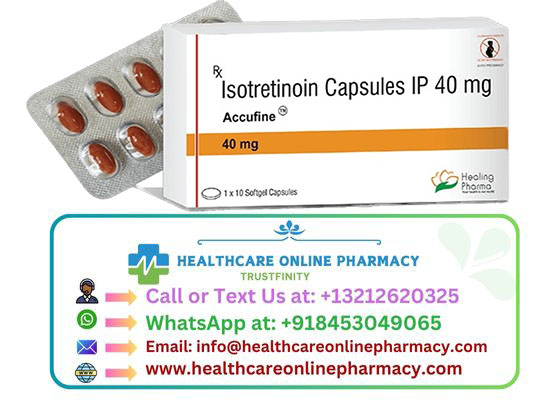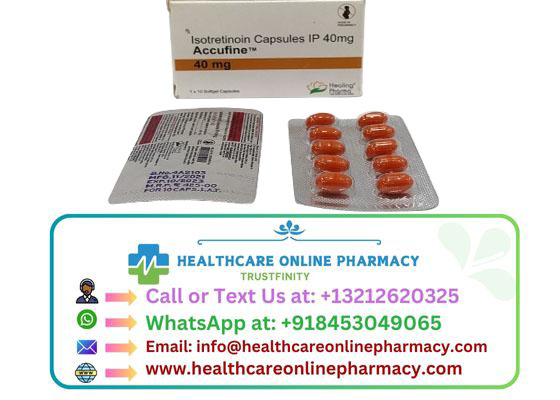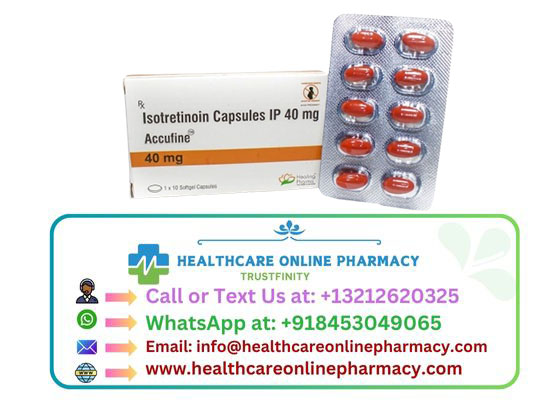- Effective Treatment for Severe Acne: Accufine is highly effective for severe, cystic acne that hasn’t responded to other treatments.
- Long-Term Remission: Many patients experience long-term remission of acne after completing a course of Accufine.
- Reduced Acne Scarring: By reducing severe acne, it can also help in preventing and minimizing acne scars.
How Accufine Works
Accufine is a retinoid (a derivative of vitamin A) that works by:
- Reducing Sebum Production: It decreases the amount of oil produced by the skin’s sebaceous glands.
- Preventing Clogged Pores: It helps prevent the formation of comedones (blackheads and whiteheads).
- Anti-Inflammatory Effects: It has anti-inflammatory properties that reduce redness and swelling.
- Antibacterial Effects: It indirectly reduces the presence of acne-causing bacteria.
- Initial Dosage: Typically, 0.5 to 1 mg/kg/day in two divided doses.
- Maintenance Dosage: Adjusted according to patient response and tolerance, usually between 0.1 and 1 mg/kg/day.
- Duration: Usually prescribed for 15-20 weeks, but the duration can vary based on the severity of acne and response to treatment.
Dosage Adjustments
Dosage may need to be adjusted based on patient response and the presence of side effects. Follow-up appointments with a healthcare provider are essential.
- Pregnancy: Accufine is highly teratogenic. Women of childbearing age must use two forms of contraception and have regular pregnancy tests before, during, and after treatment.
- Blood Donation: Avoid donating blood during and for at least one month after treatment due to the risk of birth defects if the blood is given to a pregnant woman.
- Regular Monitoring: Regular blood tests are needed to monitor liver function, lipid levels, and other potential side effects.
- Sun Exposure: Avoid excessive sun exposure and use sunscreen, as Accufine can make skin more sensitive to UV rays.
- Mental Health: Monitor for signs of depression or other mental health issues.
Common Side Effects
- Dry skin, lips, and eyes
- Nosebleeds
- Muscle aches
- Sensitivity to sunlight
- Mild rash
Serious Side Effects
- Severe birth defects if taken during pregnancy
- Liver damage
- Increased cholesterol and triglycerides
- Pancreatitis
- Severe skin reactions
- Psychiatric effects (depression, suicidal thoughts)
Long-Term Side Effects
Some side effects may persist or emerge even after stopping the medication, such as joint pain or dry skin.
- Teratogenicity: Absolute contraindication in pregnancy.
- Psychiatric Disorders: Monitor for depression, suicidal ideation, and other psychiatric symptoms.
- Liver Function: Regular monitoring of liver enzymes is essential.
- Lipid Levels: Regular monitoring of blood lipids is recommended.
- Eye Problems: Can cause dry eyes and decrease night vision.
Frequently Asked Questions (FAQ)
1. Can Accufine cure acne permanently?
Accufine can lead to long-term remission of acne for many patients, though some may experience a recurrence and require additional treatments.
2. How long does it take to see results?
Most patients start to see improvement within 1-2 months, with significant results typically seen by the end of the treatment course.
3. Can I use other acne treatments while on Accufine?
Avoid using other acne treatments, especially those that are drying or irritating, unless advised by your healthcare provider.
4. What should I do if I miss a dose?
If you miss a dose, take it as soon as you remember unless it’s almost time for the next dose. Do not double up on doses.
5. Is it safe to consume alcohol while taking Accufine?
Limit alcohol intake, as both Accufine and alcohol can affect liver function.
6. Can Accufine affect my mood?
Yes, there have been reports of mood changes, including depression and suicidal thoughts. Notify your healthcare provider if you experience any psychiatric symptoms.
7. Why are regular blood tests needed?
Regular blood tests help monitor liver function, lipid levels, and ensure the medication is not causing harmful side effects.
8. Can I donate blood while taking Accufine?
No, you should not donate blood during treatment and for at least one month after stopping Accufine due to the risk of birth defects in pregnant women who might receive your blood.
9. How should Accufine be stored?
Store at room temperature, away from light and moisture. Keep out of reach of children.
10. Are there any dietary restrictions while taking Accufine?
No specific dietary restrictions, but a healthy diet and adequate hydration can help manage side effects like dry skin.
Conclusion
Accufine is a powerful medication for severe acne but requires careful monitoring due to its potential side effects. Regular consultations with a healthcare provider are essential to ensure safe and effective treatment.







